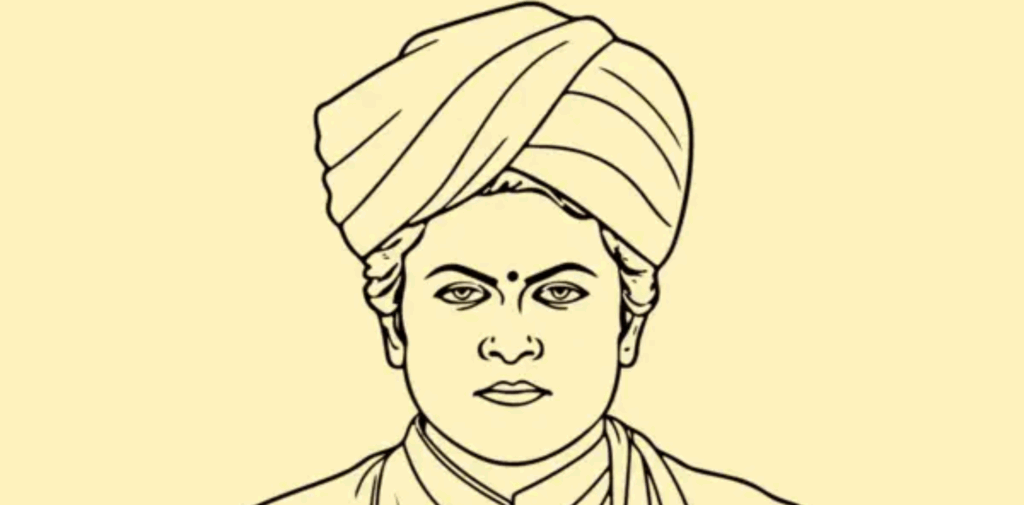Time is the most precious resource we have, and how we use it decides the success or failure of our goals. In today’s fast-paced world, everyone talks about time management — from productivity gurus to motivational speakers. But India, with its rich history and cultural heritage, has always had powerful examples of great leaders who mastered time management long before the term became popular.
In this article, we’ll explore how some of India’s most respected historical leaders — beyond the Gandhi and Nehru family — managed their time, stayed disciplined, and achieved greatness. Their lives hold important lessons that we can apply in our modern lives — whether you are a student, a working professional, or a homemaker.
Let’s dive into their stories and see what we can learn.
Chhatrapati Shivaji Maharaj – Planning and Execution Master & one of the great leaders
Shivaji Maharaj, the founder of the Maratha Empire, is one of the best examples of smart time management. He was known not just for his bravery, but also for his strategic planning. Shivaji managed a large empire while constantly fighting against powerful enemies like the Mughals and the Adilshahi.
One of the key lessons from his life is how he used his time effectively by prioritising his goals. Shivaji would often plan his attacks during specific seasons when the enemy was least prepared. His use of guerrilla warfare — which required precise timing and coordination — shows how well he understood the value of time.
He also believed in quick decision-making. Instead of delaying important matters, he would consult with his trusted advisors and act fast. In today’s terms, we would say Shivaji was an expert in task delegation and time blocking. He didn’t try to do everything himself, but focused on what only he could do — leading and protecting his people.

Rani Lakshmibai – Balancing Responsibility and Courage
The Queen of Jhansi, Rani Lakshmibai, is remembered for her courage, but her time management skills are equally inspiring. As a young widow and mother, she had to handle personal loss, raise her son, and defend her kingdom from British forces — all at the same time.
She didn’t waste time complaining about her situation. Instead, she trained herself in warfare, studied military strategies, and prepared her army for the battle ahead. Even during the war, she remained calm and managed her time between training soldiers, making political decisions, and caring for her people.
Her famous escape from Jhansi with her child tied on her back was not just an act of bravery but also a symbol of how she managed multiple responsibilities efficiently under pressure. For modern Indian women juggling career, family, and personal life, Rani Lakshmibai is a perfect example of strength, balance, and time management.
Dr. B. R. Ambedkar – A Life of Discipline and Focus
Dr. B. R. Ambedkar, the architect of the Indian Constitution, is a powerful symbol of dedication and focus. Born in a socially backward family, Ambedkar had to fight against discrimination while managing his studies and future plans. Time was always a limited resource for him, but he used every minute wisely.
He would often study for 18 to 20 hours a day and was known to carry books wherever he went. His hunger for knowledge made him one of the most educated Indians of his time. Instead of wasting time on things beyond his control, he focused on self-development.
Ambedkar followed a strict routine and broke his big goals into smaller daily tasks. Whether it was earning multiple degrees or drafting the Constitution of India, he treated each task with discipline. He also believed in self-control and never allowed emotions to delay his actions. For today’s youth, Dr. Ambedkar’s life teaches us that with strong willpower and time discipline, even the biggest obstacles can be overcome.

Swami Vivekananda – Purposeful Living and Time Use
Swami Vivekananda was not just a monk but a dynamic youth leader who inspired millions with his thoughts. His speech at the Parliament of World Religions in Chicago is still remembered for its power and clarity. But behind his success was intense preparation and a deep understanding of time.
He believed that time should not be wasted in idle talk or laziness. Vivekananda often said that a person’s greatness lies in how well they use their time. He woke up early, followed a simple routine, and used his energy to spread knowledge, not just through speeches but also through actions.
Even during his travels across India and the West, he was constantly reading, writing, and meeting people with a purpose. He never took time for granted. Swami Vivekananda’s message to today’s generation is clear — don’t waste your time on temporary distractions. Find your purpose and give your full energy to it.
Chanakya – The Power of Long-Term Planning
Chanakya, also known as Kautilya, was an ancient Indian teacher, philosopher, economist, and the brain behind the rise of Chandragupta Maurya. He believed in long-term planning and was a master strategist.
Chanakya’s time management style was different. He was not about quick results but about slow and steady planning. He used years of his life to prepare Chandragupta as a future king and didn’t rush the process. He understood that great things take time and focused his daily routine on building a powerful foundation.
He divided time into specific duties — study, planning, advising, and mentoring. His book, Arthashastra, is still studied for its strategic insights. Chanakya teaches us that patience and planning are key parts of time management, especially when we aim for something big.

Tipu Sultan – Time-bound Innovation and Leadership
Tipu Sultan, the Tiger of Mysore, was not just a warrior but also a visionary leader. He introduced innovative military techniques and was one of the first Indian rulers to use rockets in warfare.
What stands out about Tipu Sultan is how he managed his time between wars, governance, and technological progress. He did not wait for problems to come — he planned in advance. He maintained strict discipline in his court and expected the same from his officers.
Tipu’s ability to bring innovation into his leadership shows the importance of using time to improve systems. His rule was short but impactful because he didn’t waste time and always focused on growth, defense, and public welfare.
Conclusion – Timeless Lessons for Today’s India
Time management is not a modern concept. Our Indian history is filled with leaders who used their time wisely and left behind a legacy that still inspires us. Whether it’s Shivaji’s strategic planning, Rani Lakshmibai’s multitasking, Ambedkar’s discipline, Vivekananda’s purpose, Chanakya’s patience, or Tipu’s innovation — each story teaches us something valuable.
In today’s digital world, where distractions are just a click away, these historical figures remind us of the power of focus, planning, and action. The key is not to work harder but to work smarter — just like they did.
Let us not just admire these leaders but also apply their time management principles in our daily lives. Start small — set a routine, prioritise your tasks, avoid distractions, and use your time for things that truly matter. Because in the end, how you manage your time is how you manage your life.
And as Swami Vivekananda said — “Arise, awake, and stop not till the goal is reached.”




